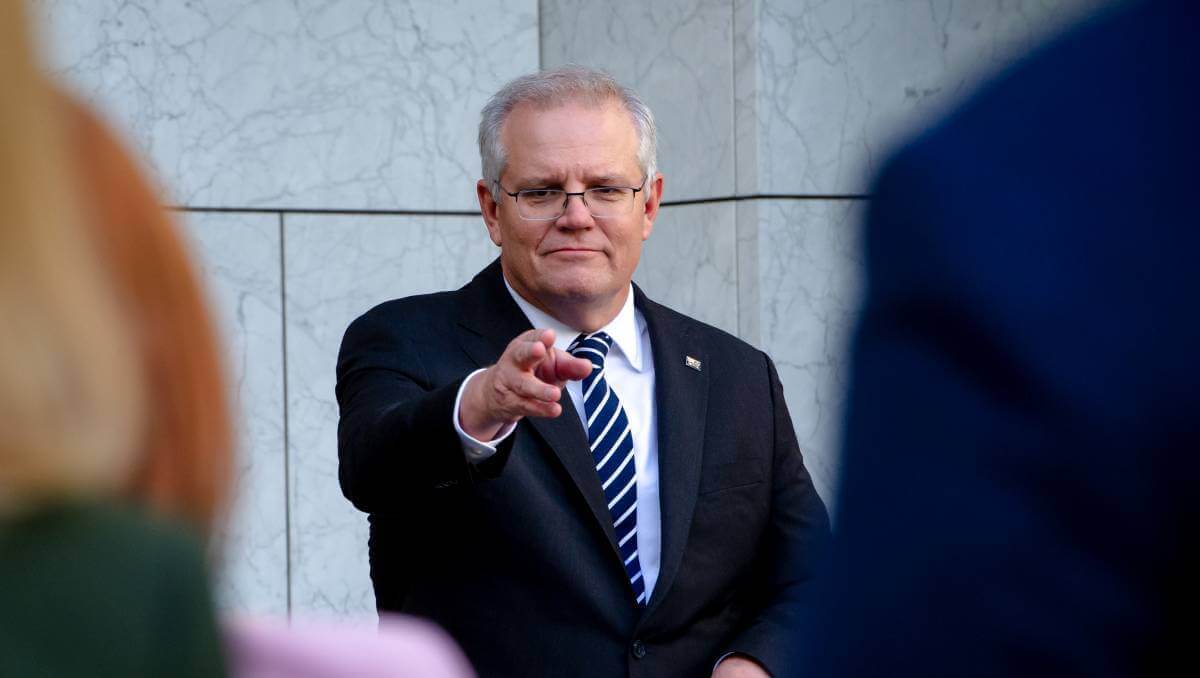Several Australian news outlets have released snippets of Prime Minister Scott Morrison’s foreign policy speech that he will deliver at the Perth US-Asia Centre on Wednesday prior to his attendance at the G7 Plus summit in Cornwall from 11-13 June. In his speech, Morrison paints a worrying picture of the international world order, and calls on Australia’s allies to support it in its calls for an investigation into the origins of the coronavirus, a reformed World Trade Organization (WTO), and push back against coercion and violations of international law. The speech, therefore, has been interpreted as yet another escalation in Australia’s enduring diplomatic and trade spat with China.
To this end, Morrison begins his speech with the warning: “There is much at stake for Australia, for our region, and the world. We are living in a time of great uncertainty not seen since the 1930s.” He adds, “We are facing heightened competition in the Indo-Pacific region. We need all nations to participate in the global system in ways that foster development and cooperation.”
Keeping this in mind, the speech says that Australia remains “ready to engage in dialogue” with China on “shared challenges,” but says that his administration remains committed to a “liberal, rules-based order.”
Morrison is also set to voice his ‘strong support’ for United States (US) President Joe Biden’s call for an independent investigation into the origins of the COVID-19 pandemic. Interestingly, tensions between Canberra and Beijing first began to fray at the start of last year when Morrison made these calls at the time. In the months that have followed, China has placed strict trade restrictions, including heightened tariffs and temporary bans, on a number of Australian exports, including copper, wine, beef, barley, timber, lobster, coal, dairy, sugar, wool, fruit, and oatmeal.
China has launched anti-dumping investigations into Australian wine and placed tariffs of up to 80% on it barley exports for dumping as well. Therefore, Australia has taken the matter of China’s trade restrictions on barley up with the WTO, and is planning to do the same with its wine exports as well, as per a recent interview with Australian Minister for Trade, Tourism, and Investment Dan Tehan.
In this light, Morrison will say: “A well-functioning WTO that sets clear rules, arbitrates disputes objectively and efficiently, and penalises bad behaviour when it occurs: this can be one of the most powerful tools the international community has to counter economic coercion.” Therefore, Morrison will also call for the restoration of the WTO’s dispute resolution body. Since December 2019, the US has obstructed the appointment of judges to the Appellate Body, with Trump saying that the WTO is biased towards China. Biden has yet to rectify this situation. Therefore, as Morrison will say in his foreign policy speech: “Where there are no consequences for coercive behaviour, there is little incentive for restraint.”
Taking all this into consideration, Morrison will reiterate the importance of an “open, rules-based global system” in which the “risks of miscalculation and conflict are growing.” He will add, however, that “competition does not have to lead to conflict,” and that “competition [doesn’t] justify coercion.”
This speech is sure to further inflame tensions with China, which appear to be at an all-time high. Under Morrison’s rule, Australia has: called for international investigations into China’s complicity in the coronavirus pandemic, described Beijing’s territorial claims in the South China Sea (SCS) as having “no legal basis”, criticised the new security legislation in Hong Kong and the treatment of Uighur Muslims in Xinjiang province, warned that China’s aggressions against Taiwan could result in warfare, elevated Australia’s relationship with India from a Strategic Partnership to a Comprehensive Strategic Partnership (CSP), participated in the Malabar naval exercises and leaders’ summits with the Quad, signed a defence pact with Japan, joined US warships in an attempt to steer Chinese vessels out of Malaysia’s Exclusive Economic Zone (EEZ), banned Huawei from the country’s 5G network, and introduced a new law that allows the federal government to overrule any agreements reached between state agreements and foreign governments and entities.
Australia PM Morrison Once Again Takes Aim At Chinese Coercion in Foreign Policy Speech
Scott Morrison calls on Australia’s allies to push back against violations of international law and to reform international institutions too uphold those laws.
June 9, 2021

IMAGE SOURCE: ELESA KURTZAustralian PM Scott Morrison
